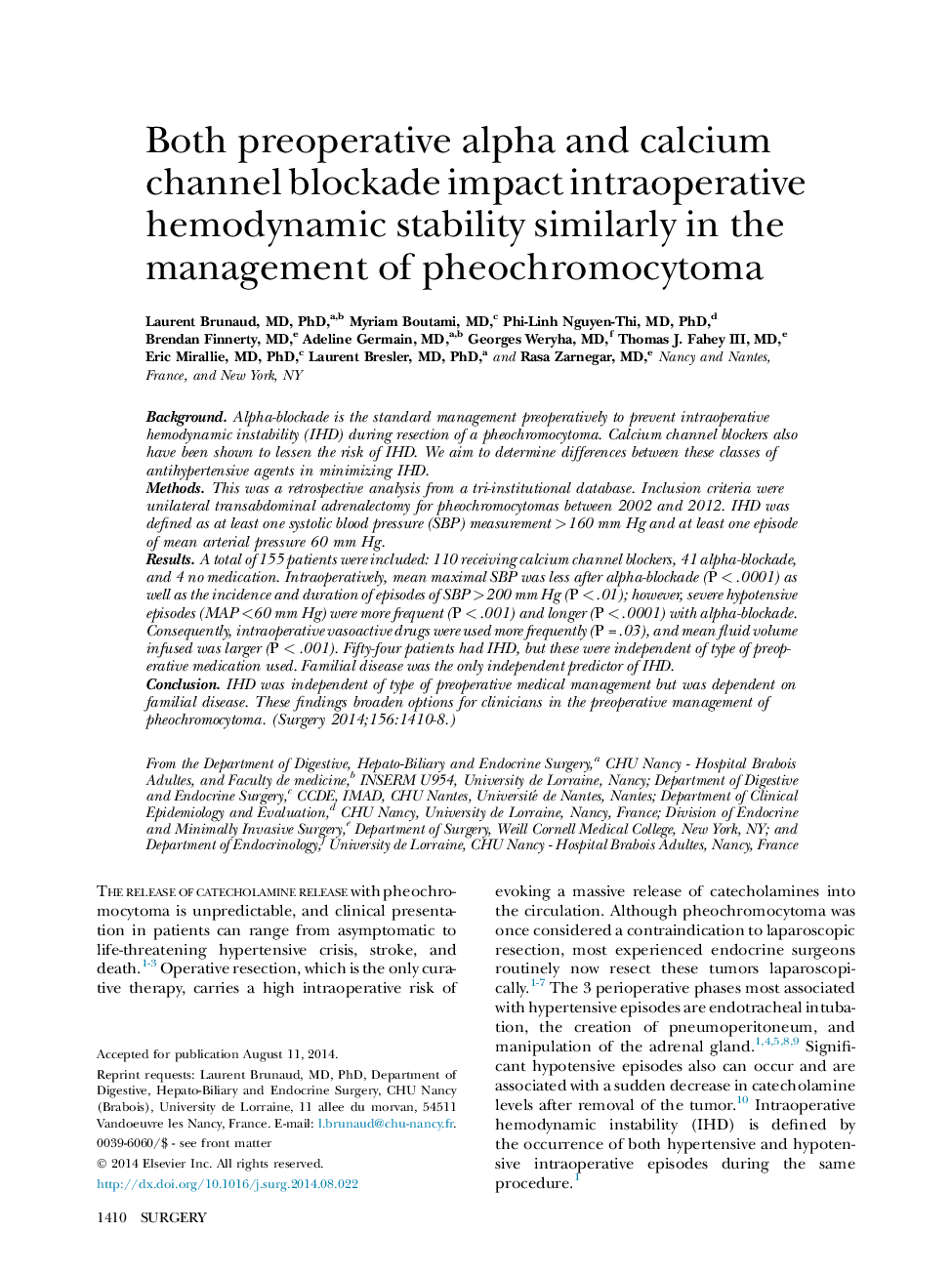| Article ID | Journal | Published Year | Pages | File Type |
|---|---|---|---|---|
| 4307426 | Surgery | 2014 | 9 Pages |
BackgroundAlpha-blockade is the standard management preoperatively to prevent intraoperative hemodynamic instability (IHD) during resection of a pheochromocytoma. Calcium channel blockers also have been shown to lessen the risk of IHD. We aim to determine differences between these classes of antihypertensive agents in minimizing IHD.MethodsThis was a retrospective analysis from a tri-institutional database. Inclusion criteria were unilateral transabdominal adrenalectomy for pheochromocytomas between 2002 and 2012. IHD was defined as at least one systolic blood pressure (SBP) measurement >160 mm Hg and at least one episode of mean arterial pressure 60 mm Hg.ResultsA total of 155 patients were included: 110 receiving calcium channel blockers, 41 alpha-blockade, and 4 no medication. Intraoperatively, mean maximal SBP was less after alpha-blockade (P < .0001) as well as the incidence and duration of episodes of SBP >200 mm Hg (P < .01); however, severe hypotensive episodes (MAP <60 mm Hg) were more frequent (P < .001) and longer (P < .0001) with alpha-blockade. Consequently, intraoperative vasoactive drugs were used more frequently (P = .03), and mean fluid volume infused was larger (P < .001). Fifty-four patients had IHD, but these were independent of type of preoperative medication used. Familial disease was the only independent predictor of IHD.ConclusionIHD was independent of type of preoperative medical management but was dependent on familial disease. These findings broaden options for clinicians in the preoperative management of pheochromocytoma.
